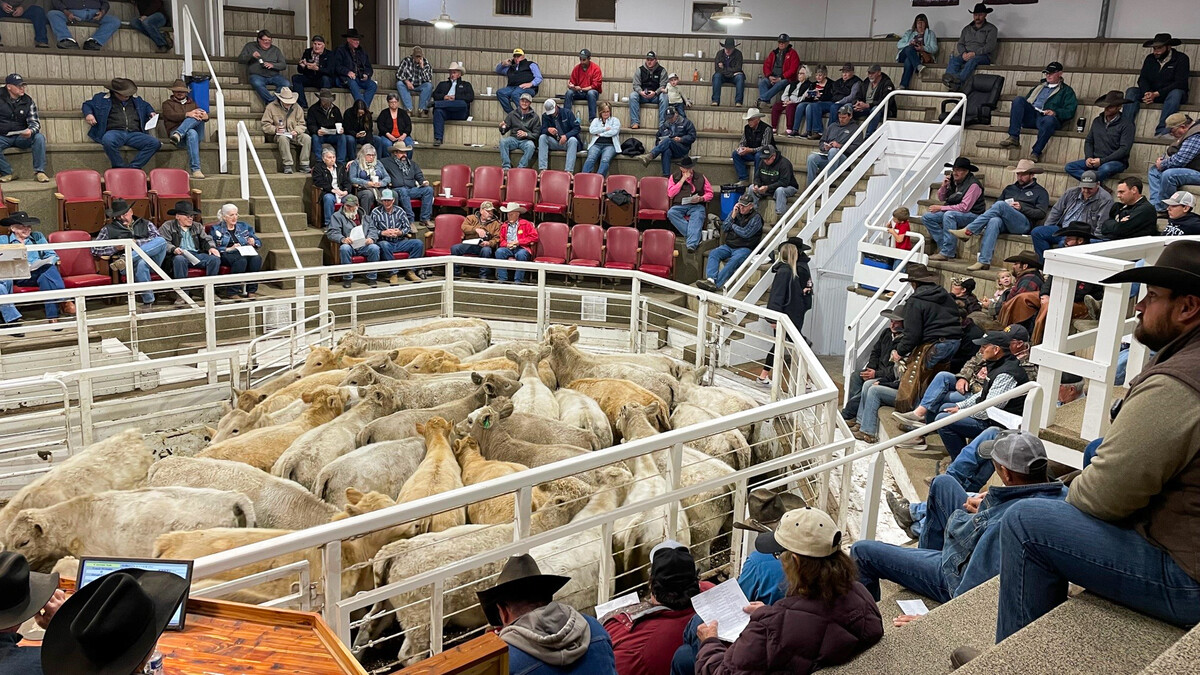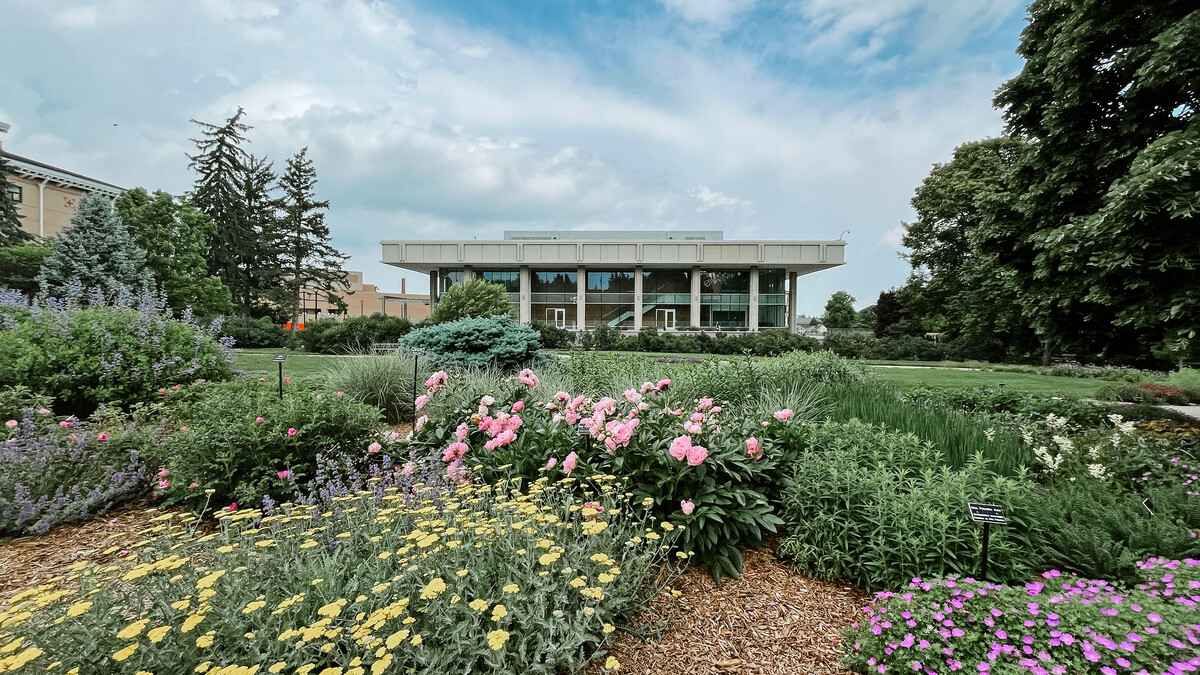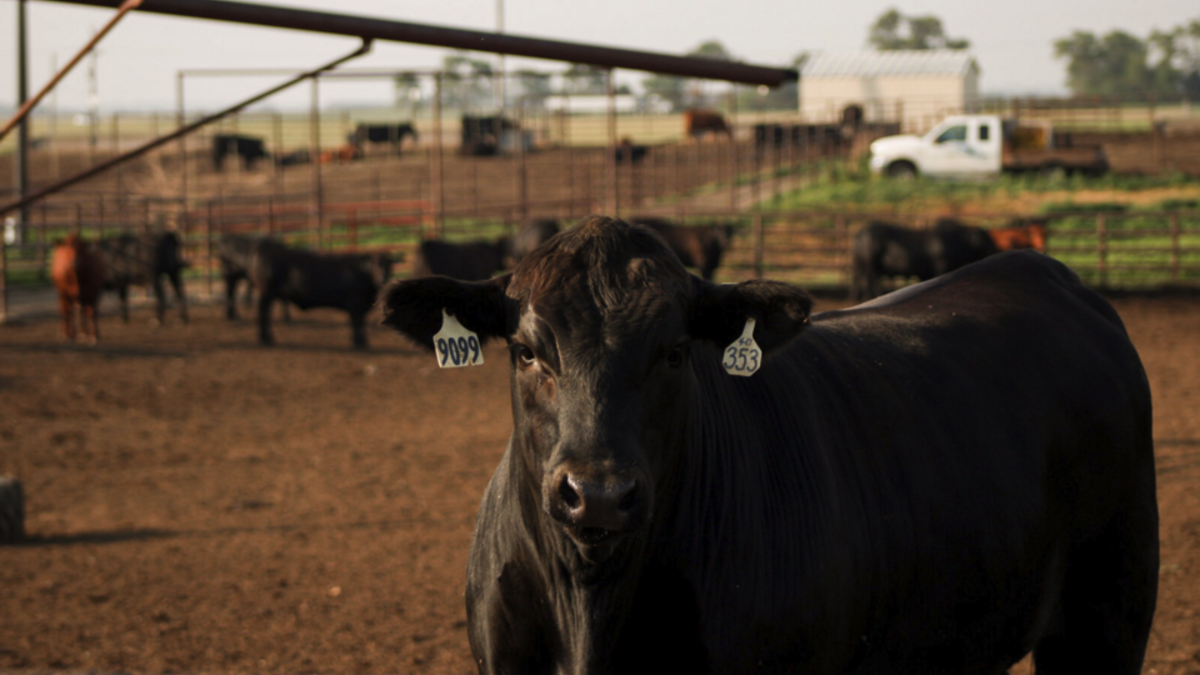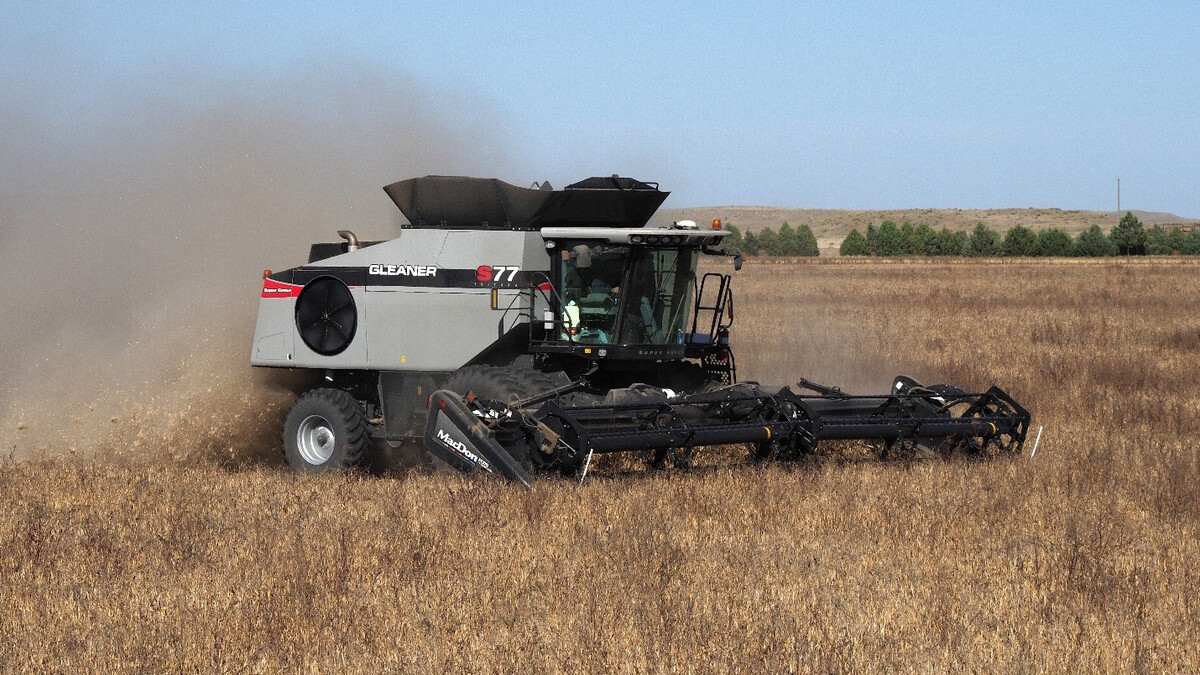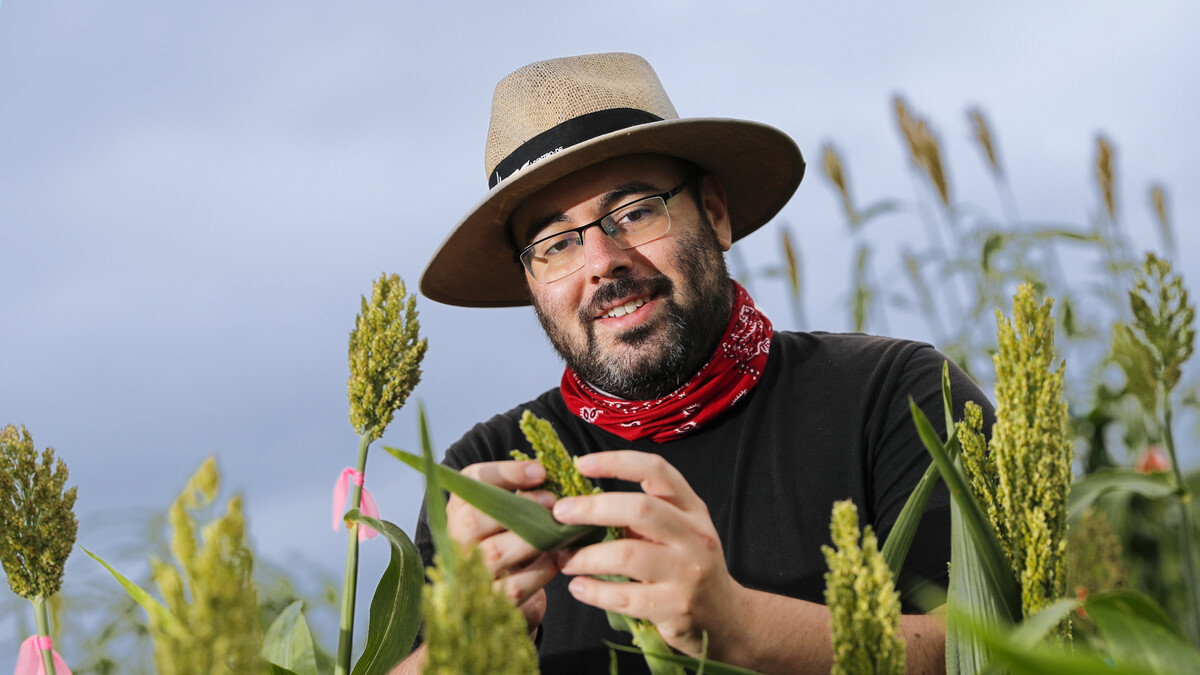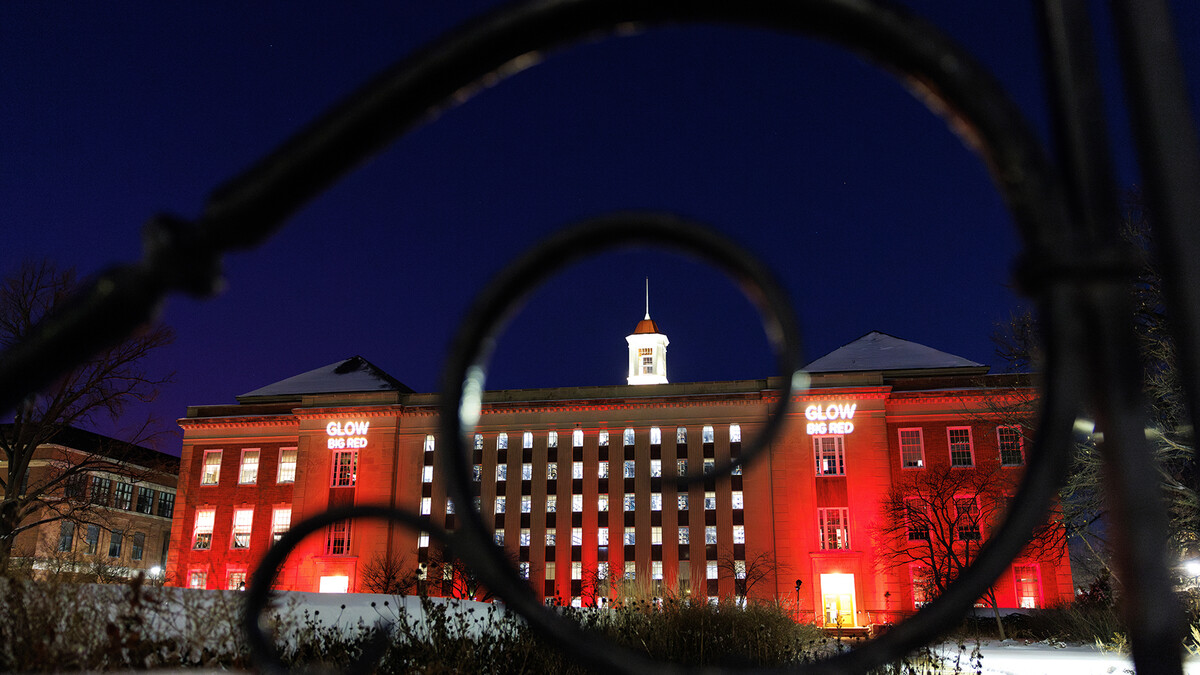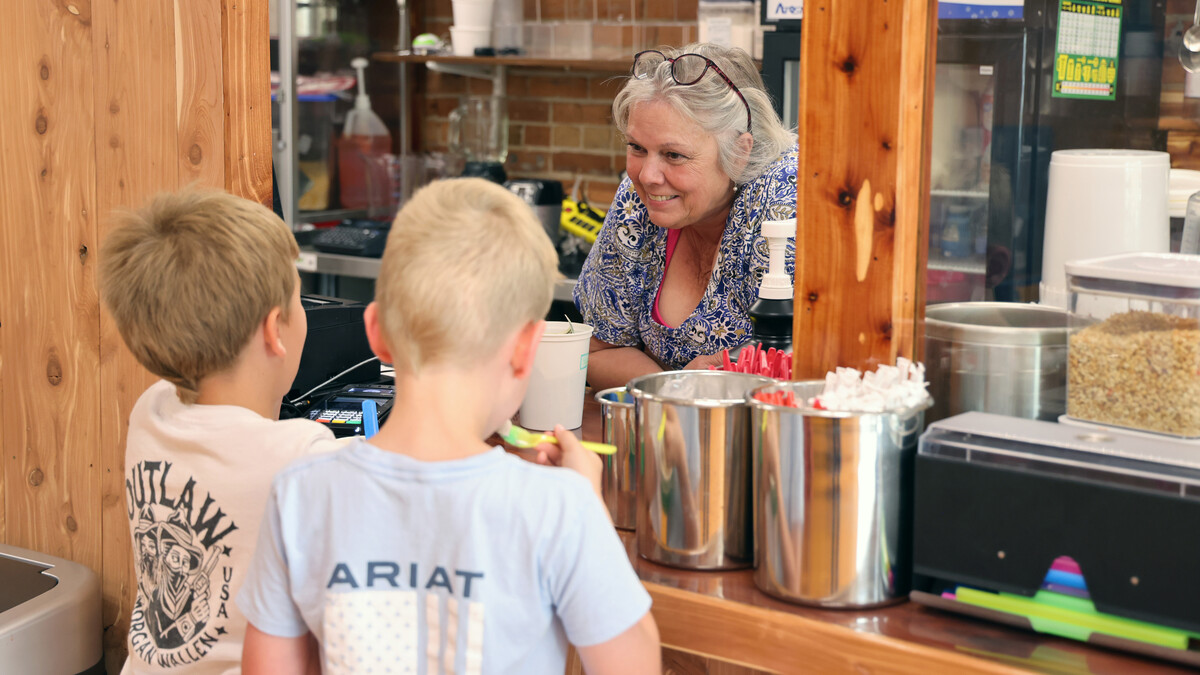Nov. 5, 2013
LINCOLN, Neb. — A futurist said Monday that young people view the communications devices they use as a part of their community, not mere tools, and this perspective will change how they live, work and play in ways that could benefit rural America.
Meantime, rural Nebraskans already are generating new ideas to revitalize their communities, ranging from using smartphone apps to give old town museums new life to providing special credit or donated land to help young farmers and ranchers get a start.
Tom Koulopoulos, founder of the Delphi Group, was keynote speaker for the University of Nebraska's second annual Rural Futures Conference, which ends Tuesday (Nov. 5) at the Cornhusker Hotel.
Koulopoulos said that humans always have sought out community, but technology is changing how they define it.
"Community is what we seek and embrace," he said. Urbanization occurred because people found it necessary to gather in large numbers to conduct commerce and communicate. That's not true anymore.
"Kids are growing up constantly connected to each other and their devices. These devices become part of their community," Koulopoulos said. "The notion of what community is will change in ways that are impossible for us to fathom right now."
Those changes could benefit rural America, he added. He predicted a "mass exodus" of future generations away from cities.
"These kids want meaning. They want quality. They want a better life," he said. "Kids realize they don't have to live in cities to get it."
NU President James B. Milliken said the Rural Futures Institute, which sponsors the conference, fits perfectly with the land-grant university's mission, first set out more than 150 years ago, to connect universities to their states' citizens.
"We have not realized the full potential of what could be achieved by leveraging our resources, our intellectual capacity and our energy" in rural America, Milliken said.
The RFI aims to do that, he said, by tapping into expertise from all four NU campuses and partnering with rural communities and leaders across the state. Already, the institute has funded 11 wide-ranging projects with $750,000 in grants. Among the projects discussed Monday:
– The Center for Rural Research and Development at the University of Nebraska at Kearney is leading an effort to attract back to the state professionals with Nebraska roots who have pursued careers elsewhere. Paul Eurek of Xpanxion Technologies, emphasized this is about more than advertising existing jobs; it's also about encouraging these former Nebraskans to come back and create their own opportunities.
– The University of Nebraska at Omaha is helping rural communities develop future generations of leaders through "crowdlearning" to encourage interaction and cooperation.
– Extension educators from Nebraska and North and South Dakota are helping rural communities learn to market themselves, through efforts specifically tailored to those communities.
"This is not nostalgia. It's not trying to go back ... It's opportunities with new and innovative ideas," said Chuck Schroeder, newly hired executive director of the institute.
More grants will be awarded in 2014.
Schroeder said his own origins in a small town in southwest Nebraska "didn't confine my view of the world and my access to the world" and that's even truer of life in rural America today.
Schroeder noted that some argued during the last serious crisis in the agricultural economy, in the mid-'80s, that it was time to abandon rural America. "There are still people out there making that argument, that rural communities can't survive, but dang it, they just keep making it."
Bob Bartee, vice chancellor of the University of Nebraska Medical Center, told the conference, "We must celebrate our past without clinging to it. We must stay true to our rural values while embracing a new narrative."
That new narrative might include some of the projects outlined in a series of 16 "quick pitches" – three minutes each – from people with innovative ideas for rural Nebraska. One participant suggested smartphone apps could draw young people into rural museums by making the history they contain more vital and interactive. Another proposed a conservation credit program funded by investors interested in preserving rural life that would give young ranchers a start in business. A couple of young law students proposed a program to make sure rural Nebraskans have access to attorneys.
More than 500 people registered for the conference, which concludes today (Nov. 5) with a lecture by U.S. Secretary of Agriculture Tom Vilsack, part of the Heuermann Lectures at the university's Institute of Agriculture and Natural Resources.
Dan MoserIANR News Service
402-472-3030
dmoser3@unl.edu
